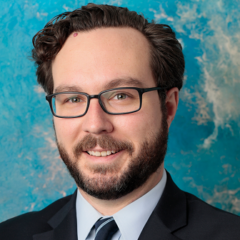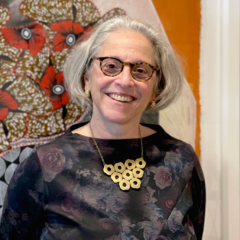Students Will Receive Braille Exams, Tactile Graphics
Kaleigh Brendle, a blind advanced-placement (AP) high school student from New Jersey, and the National Federation of the Blind (NFB), the nation’s leading advocate for the equal education of the blind, have resolved their dispute with the College Board over its administration of the advanced placement examinations to blind and deafblind students during the coronavirus pandemic. Ms. Brendle and the NFB filed complaints with the United States Department of Education and Department of Justice on behalf of themselves and four other named students, as well as the class of all other blind and deafblind students. The complaints alleged that the students’ rights were violated when the College Board instituted a digital-only format for the exams because of the pandemic and did not provide hard-copy Braille tests and/or hard-copy tactile graphics to students who had requested and been granted those accommodations. The complaints have been withdrawn in light of today’s resolution.
Without admitting wrongdoing, the College Board has agreed to allow certain students to re-take AP exams using hard-copy tactile graphics (including charts, coordinate planes, diagrams, maps, etc.) and to administer hard-copy Braille tests to students who were already approved for Braille and who request to take or re-take their exams with hard-copy Braille. Students will be able to take the Braille tests by September 15, 2020. For students who re-take exams with hard-copy tactile graphics or hard-copy Braille, any prior answers or test scores will be disregarded. The College Board will also provide a letter to affected high school seniors explaining the delay in testing and scoring so that these seniors can provide that information to institutions of higher education.
In a separate letter not related to the complaints, the College Board has also agreed to consult with the National Federation of the Blind on procedures for administering the SAT and SAT subject tests to blind and deafblind students.
“My fellow blind and deafblind AP scholars and I never sought confrontation, compensation, or publicity. We desired only to receive fair treatment and to be provided with the materials we require in order to succeed,” said Kaleigh Brendle. “We raised our voices on behalf of those who could not, with the hope that every student who needed Braille would receive it. We are grateful to the College Board for listening to and understanding our concerns and working with us to institute change. Now, we can resume preparing for these influential exams and shaping our futures as empowered advocates of equality and opportunity.”
“It has been a privilege to work alongside these courageous students who raised their voices about the unfair treatment they received during an already stressful time,” said Mark Riccobono, President of the National Federation of the Blind. “This swift and equitable agreement exemplifies the power of collective action. We look forward to further cooperation and collaboration between the College Board and the organized blind movement to improve opportunities for all blind and deafblind scholars.”
Ms. Brendle and the National Federation of the Blind were represented by Sharon Krevor-Weisbaum and Kevin Docherty of Brown, Goldstein & Levy.

